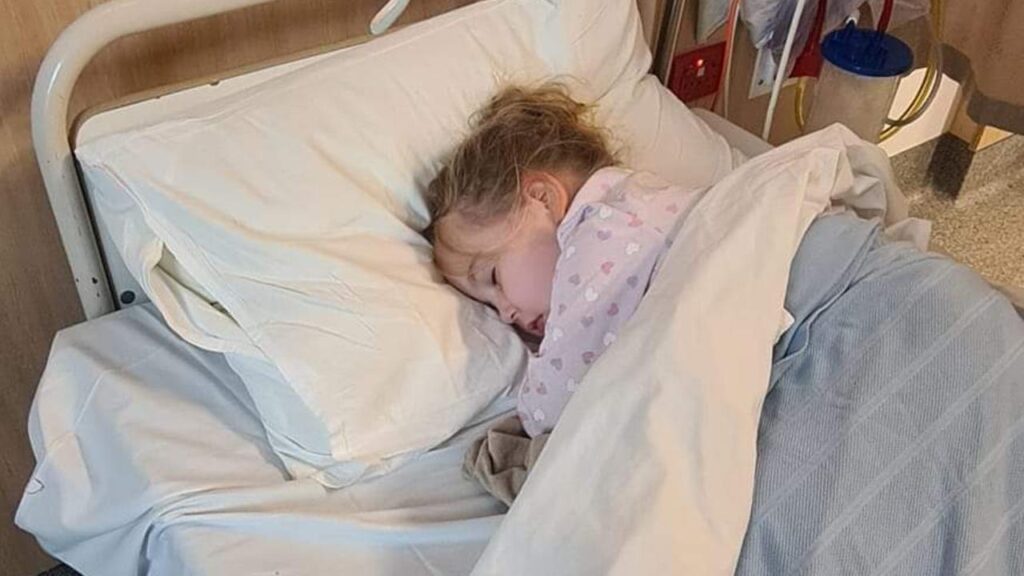Understanding the importance of quality sleep
Getting a good night’s sleep is essential for overall health and well-being. Quality sleep plays a critical role in our physical, mental, and emotional health. It isn’t just about the number of hours we spend in bed; it’s about the quality of those hours and how well we rest.
Sleep is the body’s natural way of rejuvenating itself. During sleep, processes occur that help the body repair tissues, synthesise proteins, and release hormones that regulate growth and appetite. Consequently, quality sleep can lead to improved mood, enhanced cognitive function, and better physical performance.
The science behind sleep and health
Scientific research indicates that sleep affects several bodily functions, including metabolism, immune function, and cognitive processing. The body goes through various sleep cycles, including REM (Rapid Eye Movement) and non-REM sleep, each serving different restorative purposes.
In conculsion sleep study Rockhampton, an increased focus on education and resources around sleep health ensures that residents have the information and support needed to improve their sleep without financial stress. It’s this community involvement that may one day help eliminate barriers to quality sleep for everyone.
For instance, during REM sleep, the brain processes information, facilitating memory consolidation and emotional regulation. Conversely, non-REM sleep focuses on physical restoration. This duality underscores why quality sleep is critical—it is necessary for both brain health and bodily repair.

The impact of poor sleep on daily life
Conversely, insufficient or poor-quality sleep can detrimentally affect daily life. Individuals may experience difficulties with concentration, irritability, and even physical health problems such as obesity and cardiovascular disease. Over time, lack of sleep can lead to chronic issues that complicate day-to-day functioning.
Moreover, those with persistent sleep troubles can become trapped in a cycle of stress and anxiety, making it even more challenging to achieve restful sleep. Understanding this cycle emphasises the importance of addressing sleep problems early on, often facilitated by sleep studies.
Find about sleep study cpap on: Sleep Study CPAP Testing
The concept of sleep studies
Sleep studies, also known as polysomnography, are essential diagnostic tools used to evaluate sleep patterns and identify potential disorders. These studies provide crucial data that help medical professionals determine appropriate interventions and treatments for improving sleep health. Learn more about interventions on https://www.highspeedtraining.co.uk/hub/effective-interventions-in-education/
Conducted in specialised sleep clinics or even at home, a sleep study tracks various physiological parameters, such as brain activity, heart rate, and breathing patterns. This comprehensive view of a person’s sleep behaviour is invaluable in diagnosing conditions such as sleep apnoea, insomnia, and restless leg syndrome.
What is a sleep study?
A sleep study is a multi-faceted evaluation that monitors an individual’s sleep cycles and behaviours. It typically involves spending a night in a sleep lab where various sensors capture real-time data about the patient’s body while they sleep. The collected data can provide insights into potential sleep disorders and help devise effective treatment plans.
In some instances, home sleep studies are available. These involve using portable monitoring devices that allow individuals to collect data in the comfort of their homes, which can be particularly beneficial for those with certain health concerns or who have difficulty sleeping in unfamiliar environments.
The role of sleep studies in diagnosing sleep disorders
Sleep studies have revolutionised the way we approach sleep disorders. By providing precise measurements and analyses, they play a crucial role in identifying conditions that might otherwise go unnoticed. For instance, sleep apnoea, a common disorder marked by interrupted breathing during sleep, can be effectively diagnosed through a sleep study.
From the data collected, healthcare professionals can identify the severity of a patient’s condition and recommend suitable interventions, whether lifestyle changes or medical treatments, helping individuals reclaim their sleep health. To find more about medical click here.
The affordability of sleep studies in Rockhampton
Despite the importance of sleep studies, the cost can often be a barrier for many seeking to improve their sleep health. Rockhampton is making strides to address this issue, providing resources and options that cater to those on a budget.
In recent years, local health institutions have increased their efforts to ensure that residents have access to quality sleep studies without the financial strain. This includes offering subsidised rates, flexible payment options, and even community health initiatives aimed at educating the public about sleep health.
The cost of sleep studies: a comparative analysis
The financial aspect of sleep studies can vary widely, depending on various factors such as the location, type of study, and equipment used. In comparison to larger metropolitan areas, Rockhampton offers relatively competitive pricing for sleep studies.
For instance, the average cost of a comprehensive sleep study in larger cities may range from £1,000 to £2,500, whereas in Rockhampton, residents may find options that start as low as £600. This affordability makes it much more feasible for individuals seeking answers to their sleep issues.
Making sleep studies affordable: Rockhampton’s approach
Rockhampton’s approach to making sleep studies more accessible involves collaborating with local health services and private clinics. These partnerships aim to provide transparent pricing, discounts, and public workshops focused on the importance of sleep health.
Additionally, awareness campaigns across community platforms educate residents about available services and promote the significance of seeking help for sleep disorders, further normalising the discussion around sleep health.

How to improve sleep without spending a fortune
While sleep studies can be instrumental, there are also numerous practical ways individuals can enhance their sleep without breaking the bank. Simple lifestyle adjustments and changes in sleep hygiene can significantly impact sleep quality.
Creating a restful environment, establishing a regular sleep schedule, and reducing screen time before bed are all cost-effective strategies that encourage better sleep patterns. Additionally, mindfulness practices such as meditation can promote relaxation, preparing the mind and body for sleep.
Practical tips for better sleep hygiene
Here are some practical tips to improve sleep hygiene:
- Maintain a regular sleep schedule by going to bed and waking up at the same time each day.
- Create a calming bedtime routine that includes activities like reading or taking a warm bath.
- Keep your bedroom cool, dark, and quiet to encourage restful sleep.
- Avoid caffeine and heavy meals close to bedtime.
- Limit exposure to screens and bright lights in the evening.
Affordable sleep aids and their effectiveness
Many individuals may turn to sleep aids to assist with sleep challenges. While some commercial sleep aids can be costly, there are also several affordable options available, such as herbal teas and over-the-counter supplements like melatonin.
Natural sleep aids tend to have fewer side effects and can be effective for many people. However, it’s always advisable to consult a healthcare professional before starting any new supplementation, especially for those with pre-existing conditions or who are pregnant.
The future of affordable sleep studies in Rockhampton
As health professionals and community leaders continue to recognise the importance of sleep health, the future looks promising for the affordability of sleep studies in Rockhampton. Ongoing innovations in technology and patient care are paving the way for better accessibility.
The growth of telehealth services, for instance, allows many to undergo preliminary assessments from the comfort of their own homes. This can ease the initial barriers to seeking help and make the referral process for sleep studies smoother and more efficient.
Innovations in sleep study technology
Recent advancements in sleep study technology have made monitoring sleep less invasive and more manageable. New wearable devices witness the rise of at-home sleep studies, enabling individuals to track their sleep patterns and seek interventions before needing a clinical diagnosis.
These innovations not only improve patient experience but also hold the potential to reduce healthcare costs by minimising the need for lengthy clinics visits and allowing for early intervention.
The role of community in promoting affordable sleep health
The community plays a crucial role in the promotion of affordable sleep health. Through workshops, local campaigns, and partnerships with healthcare providers, the focus on sleep health is being raised. Engaging the public in discussions about sleep isn’t just beneficial for individuals but can lead to collective improvements in community well-being.